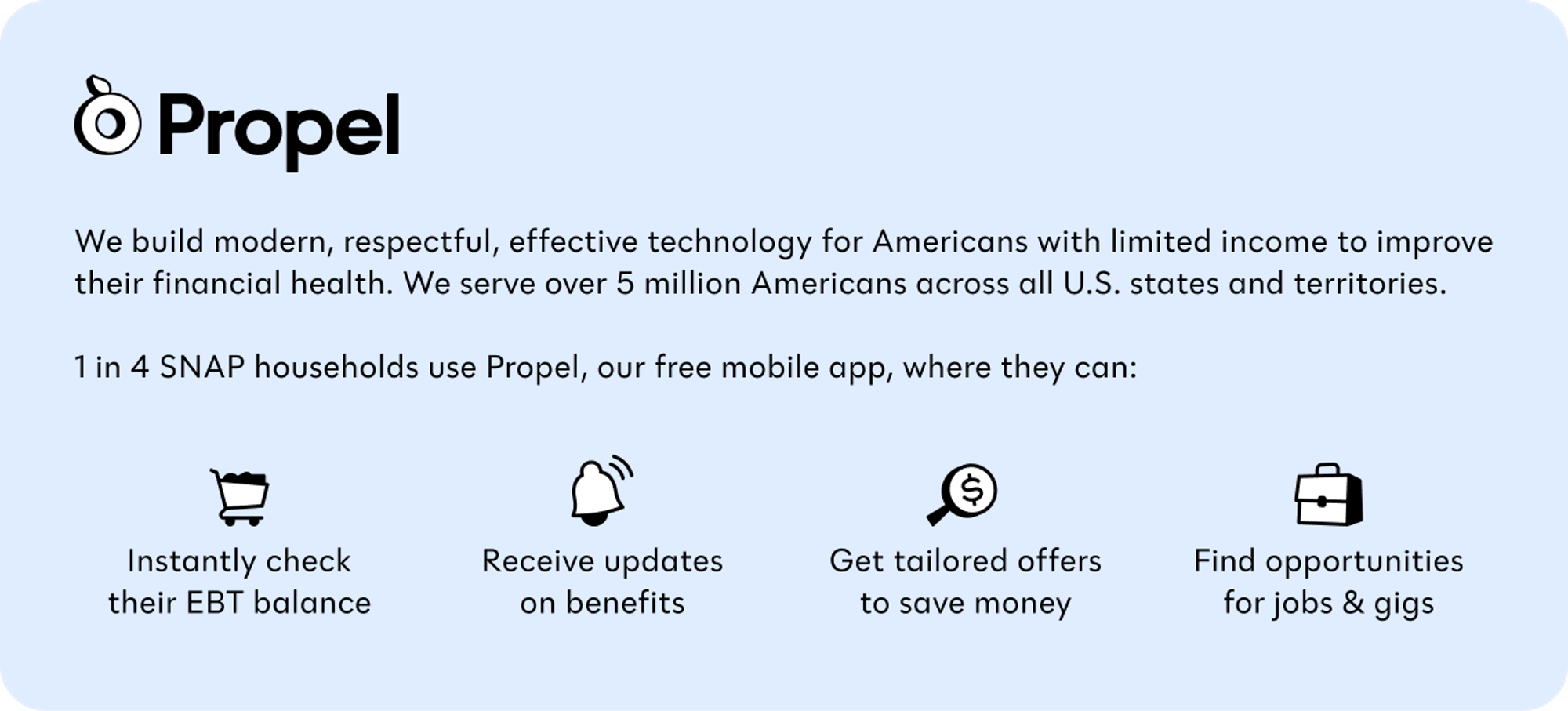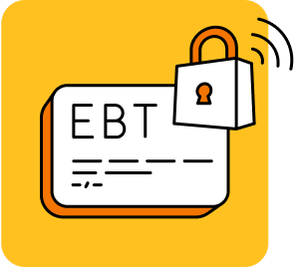February 2025 Pulse Survey


Summary
While respondents report modest improvements in food and housing security compared to November, most households are in the same place they were a year ago - facing a rising cost of living with shrinking cash on hand.
The following insights come from a <10-minute multiple choice and open response survey conducted by Propel. This month, responses came from 2,197 randomly selected households out of more than 5 million Propel users from February 1 - 14, 2025. All respondents are EBT cardholders.
Food Insecurity#food-insecurity
Households had a slightly easier time in February when it came to having food on the table. Fewer respondents reported eating less and struggling to buy food compared to a few months ago, but meal skipping remains common among respondents. A high reliance on food pantries has also not changed significantly since this time last year.
- 41% reported eating less in the last 30 days, an 11% decrease from November and the lowest percentage since the survey began.
- 41% said they were not able to buy the kinds of foods they wanted, a 10% decrease from November and the lowest percentage since the survey began.
- 37% reported skipping meals, a percentage that has remained constant for a year.
- 33% visited a food pantry in the last 30 days, virtually unchanged from a year ago.

“When my next-door neighbor goes to the food pantry she realizes that I haven’t gone out that much and brings back extra food for the rest of the apartments in the complex. This really helps because with medical costs rising and co-pays that have to be paid on a fixed income there’s not much money, if any, left.” – Lawson, Pennsylvania
Housing Insecurity#housing-insecurity
February saw small upticks in unstable housing, shelter stays, and concerns about maintaining housing. However, more respondents reported paying their rent or mortgage on time, and fewer are facing eviction or utility shut-offs compared to a year ago.
- 63% said they were “very certain” they will maintain their current housing in the next 30 days, a slight decrease from 65% in November, but still historically high for the survey.
- 24% did not pay the full amount of their utility bills, a 13% decrease from November and the second lowest percentage since the survey began.
- 12% did not pay the full amount of their rent or mortgage, a 19% decrease from November and the second lowest percentage since the survey began.
- 6% stayed at a shelter at least one night in the past 30 days, a 12% increase from November and the third straight quarter of growth in this category.
“I'm currently waiting on a decision from social security, so I've had to ask for loans from friends and family. But that is slowly coming to an end and I'm scared of becoming homeless.” – Secret, Michigan
Financial Insecurity#financial-insecurity
Households continue to struggle with low cash on hand, which suggests that the high cost of living is keeping budgets tight. A majority of respondents still report having less than $25 in cash, and half of respondents say their available cash will only last a couple days.
- 54% report not having everything they typically need for their home, including food, household products, and cleaning supplies - the same percentage it was in February 2024.
- 63% say they have less than $25 in cash on hand, largely unchanged since this time last year.
- 50% say this cash will only last them 1-2 days, down slightly from 54% this time last year.

“Even though our household struggles daily with money, bills, food and daily necessities we always help people in need in any way we can. If we had 8 cans of vegetables and needed to eat for 7 more days we would donate 1-2 of those cans without thinking twice.” – Lindsey, Connecticut
Borrowing & Debt#borrowing-and-debt
Fewer respondents reported receiving charitable funds, while more are turning to family and friends for loans. The increase in borrowing from family and friends highlights the reliance of many households on informal financial support systems.
- 33% report owing money to family and friends, a 13% increase from November.
- 53% have credit card debt, close to the average of all months in the survey.
- 7% received charitable funds in the past 30 days, a 26% decrease from November but the same percentage as this time last year.

“I’ve asked for help with money, food, and utilities from family. Asked for food from friends. I cannot afford to live anymore.” – Jess, Pennsylvania


